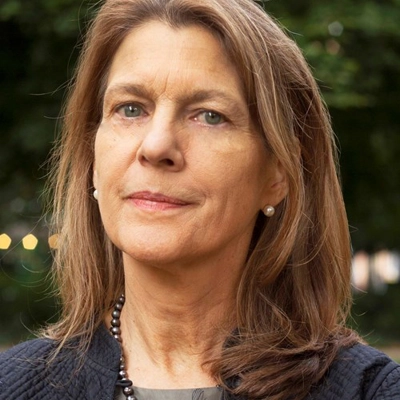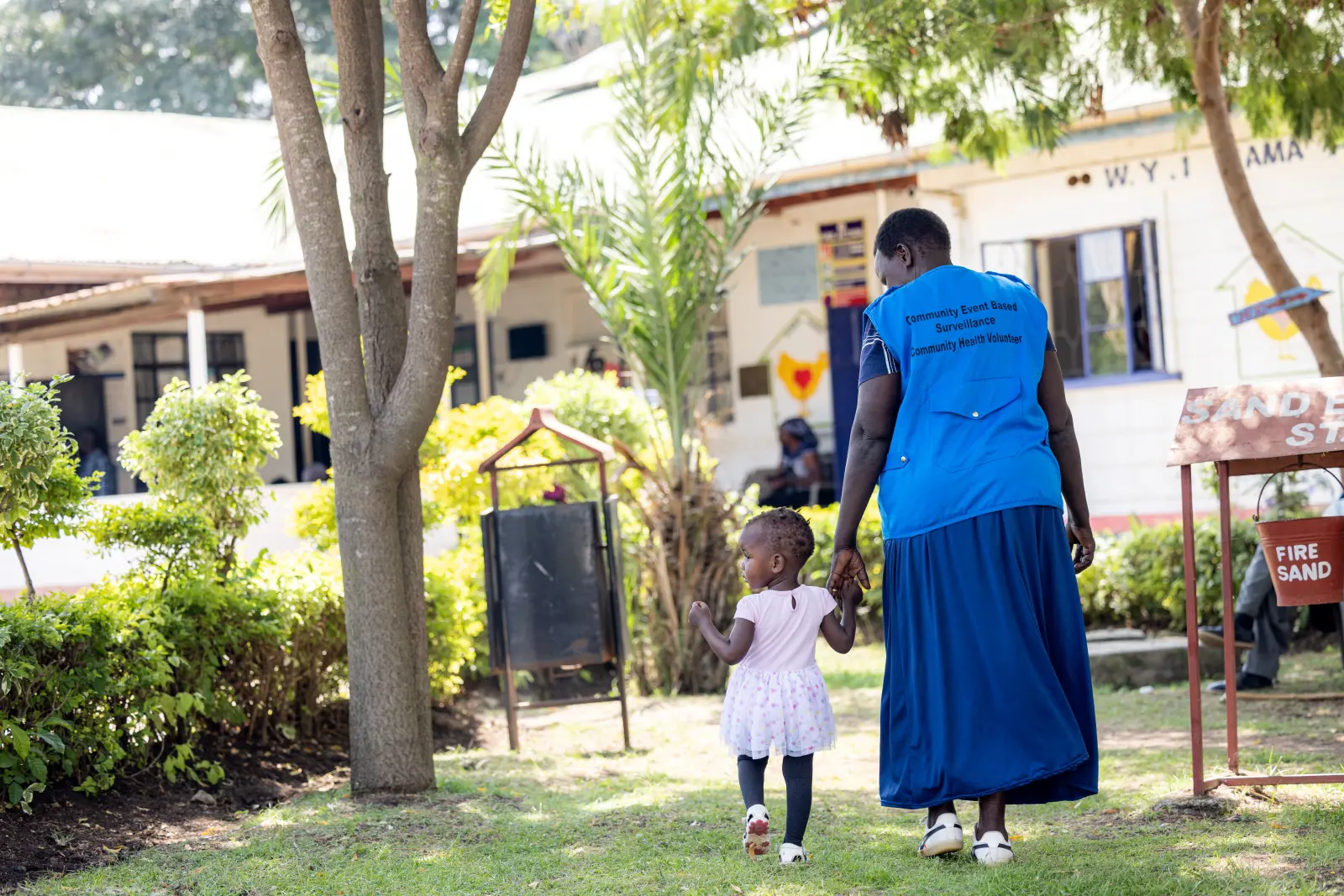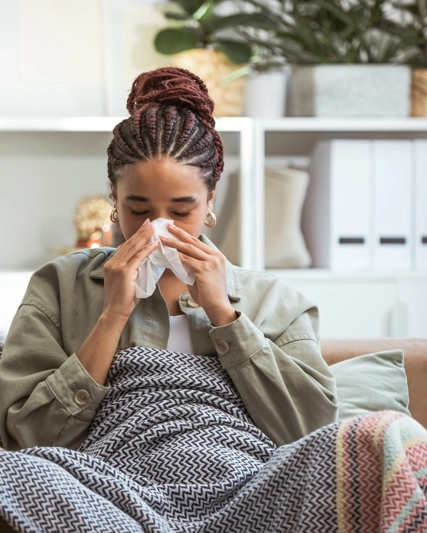Years of innovation have expanded the menu of preventative medicines available, but science alone isn’t enough. Here, Professor Heidi J. Larson, anthropologist and co-founder of the Global Listening Project, explains why improving trust in vaccination is essential to creating more resilient societies.
Your doctor sits across from you. You’ve come in to address a flare-up in your asthma. You’re in your early 60s, still working as a teacher and juggling the usual demands of life.
Your doctor listens, nods and types. They note your age and medical history. They also consider the recent rise of respiratory infections like RSV, flu and COVID-19 – viruses that can be experienced more severely by people with underlying lung issues.
And there it is – the opening for a conversation focused on evidence-based ways to prevent illness rather than treating it reactively.
This type of interaction between a doctor and a patient might seem obvious, but in a digital world in which so many people find themselves overwhelmed by conflicting information and misinformation, they may lose confidence in routine vaccinations. Because of this, these moments require careful navigation.
How do we ensure that scientific fact can be made relevant to patients so that they are properly protected from preventable disease? From the insights I’ve seen as the co-founder and Chair of the Global Listening Project (GLP) – an organisation that gathers sentiments, experiences, and perspectives from communities across the world to help inform communication strategies and shape healthcare policies and programmes – the answer lies closer to home than you might think.
Why is prevention so important?
Thanks to incredible advances in science and technology, we now have the potential to prevent and change the course of many diseases.
However, healthcare systems are facing mounting pressures. By 2030, over 1.4 billion people globally will be over the age of 60. Chronic diseases are on the rise, accounting for roughly 75% of deaths worldwide and costing an estimated $47 trillion globally by 2030.
Protection is available for 25 vaccine-preventable infectious diseases – including flu, COVID-19 and RSV – yet these infections continue to take a toll on our communities.
It’s been five years since the first surge of COVID-19 cases, and scepticism around vaccines has increased since the pandemic.
We wanted to find out why this was, so in partnership with GSK and others, we launched a global survey in 2023 to focus on understanding who people turned to and trusted during the pandemic - from government officials, scientists and family doctors to employers, friends and family. We interviewed over 70,000 people across 70 different countries.
GSK then independently analysed the data to explore belief in adult vaccination, with deeper qualitative insights gathered in the US, UK, Japan and Germany.
The findings were sobering, but perhaps not surprising.
Vaccine confidence had indeed fallen from pre-COVID levels in 90% of the countries we surveyed. One in four people questioned vaccine safety, including a quarter of people over the age of 55 who are at increased risk of complications from many diseases due to their age. Women, youth, and those with lower education levels may be more likely to identify as critical of vaccinations. And, notably, the trend of declining confidence in vaccines has been more prominent in countries with robust healthcare systems where safety concerns dominate public discourse and media attention.
This growing hesitancy is leading to people opting out of vaccinations for themselves and for those they care for – putting us, as a global community, at greater risk of major disease outbreaks.
Building trust
To understand the barriers to vaccine confidence, we also wanted to recognise the diverse reasons some patients feel unsure about them.
Most people are trying to make sense of complex science in a fast-moving world. Our research showed that people still value expert perspectives but are met with varying viewpoints online. They want to hear from a trusted person, like a local doctor, in a familiar language and in a way made relevant to their lives.
So how do healthcare practitioners meet patients where they are with accurate information? We found out that it often starts with listening, not lecturing. The sheer act of not dismissing their concerns builds trust. From there, it becomes possible to explore the risks and benefits of vaccination together, allowing patients to feel well-informed and confident that recommendations are personalised to them – considering their age, health status, lifestyle and goals.
This is easier said than done, of course. In the UK, a typical doctor’s appointment lasts just 10 minutes. Trust, like time, is a finite resource – a form of capital that doctors must use wisely. This is especially important given that our analysis revealed that 2 in 3 people believe physicians – who are viewed as the most credible sources of healthcare information – should take a more active role in conversations around adult vaccination.
Clinic to community
Our data also shows that people are likely to be influenced by peers they view as relevant and relatable to their own lives.
Local influencers – including friends and family – may not be formally trained but they can be trusted carriers of credible information. We’ve seen this before: real change happens when whole communities are engaged and sharing reliable, relevant and relatable knowledge obtained through credible sources like doctors, nurses and other health professionals.
What does that look like? Well, let’s go back to your doctor’s office. The conversation you have feels more personal, not only because it considers your asthma, but active ways to reduce your risk of disease and stay well. This gives you more confidence, you decide to get vaccinated and proactively plan for additional routine healthcare appointments later in the year. Later that day, you tell a friend about it, influencing the flow of evidence-based medicine.
Your friend brings it up with their neighbour. They bring it up at work. And with their family. And so it continues – crossing cultural, demographic, and possibly political boundaries to have personal impact in a way that mass messaging often cannot.
This is a model that can work. Research around the science of influence already tells us that personal, emotionally resonant communication outperforms abstract facts, especially when shared by someone relatable, and our research echoes this.
Healthcare professionals start the conversation. Communities carry it forward. Evidence moves from person to person, repeated, rephrased, and reshaped through trust and relevance.
How we get there? Well, that’s the next step. And if we take it together, we will create a space where confidence in science and vaccination can grow.
See the Global Listening Projects societal preparedness insights in full here







